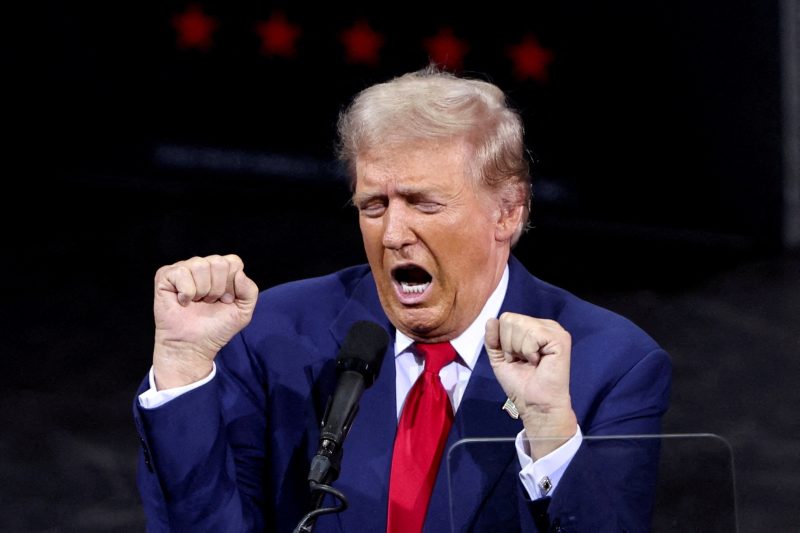In a bold move to stimulate economic growth and provide relief to American workers, President Donald Trump recently proposed an initiative to eliminate taxes on overtime pay. The proposition aims to incentivize businesses to offer more overtime hours to employees without the burden of additional taxation, potentially increasing take-home pay for many workers. While the proposal has garnered mixed reactions, with some praising it as a step towards increasing workers’ income and improving their financial well-being, economists are expressing skepticism about its intended impacts.
One key concern among economists is the potential impact of the proposed tax exemption on businesses’ bottom line. By exempting overtime pay from taxation, some economists argue that companies could exploit this policy to reduce regular pay rates in favor of increased overtime hours. Such a scenario could lead to a situation where workers are pressured to work longer hours to maintain their current income levels, potentially resulting in burnout, decreased job satisfaction, and strained work-life balance.
Another area of skepticism among economists pertains to the broader economic implications of the proposed initiative. While the proposal may provide a short-term boost to workers’ incomes, some economists caution that it could have unintended consequences on overall wage dynamics and labor market practices. By incentivizing companies to rely more heavily on overtime hours, the proposal may hinder efforts to promote fair wages, discourage job creation, and perpetuate income inequality in the long run.
Moreover, concerns have been raised about the potential impact of the tax exemption on government revenue and fiscal policy. With overtime pay accounting for a significant portion of total wages in various industries, eliminating taxes on such income could result in substantial revenue losses for the government. This, in turn, could constrain the government’s ability to fund essential public services, infrastructure projects, and social welfare programs, potentially offsetting any short-term benefits gained from the tax exemption.
Critics of the proposal also argue that it fails to address underlying issues such as stagnant wage growth, income inequality, and the erosion of workers’ rights. Rather than focusing solely on exempting overtime pay from taxes, economists suggest that policymakers should consider comprehensive measures to address these systemic challenges, including raising the federal minimum wage, strengthening labor protections, and promoting inclusive economic growth strategies.
In conclusion, while President Trump’s proposal to end taxes on overtime pay has sparked a debate on its potential benefits and drawbacks, economists remain cautious about its effectiveness in achieving its intended goals. As policymakers continue to explore ways to support workers and boost economic prosperity, it is essential to consider the broader implications of such initiatives and to adopt a holistic approach that addresses underlying structural issues in the labor market. Only through thoughtful and evidence-based policymaking can we ensure sustainable and inclusive economic growth that benefits all Americans.
